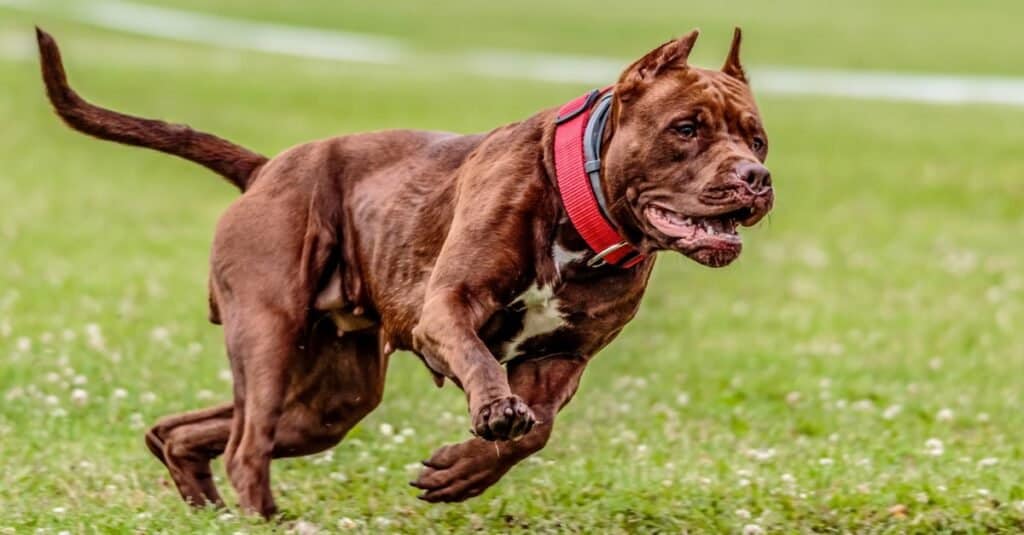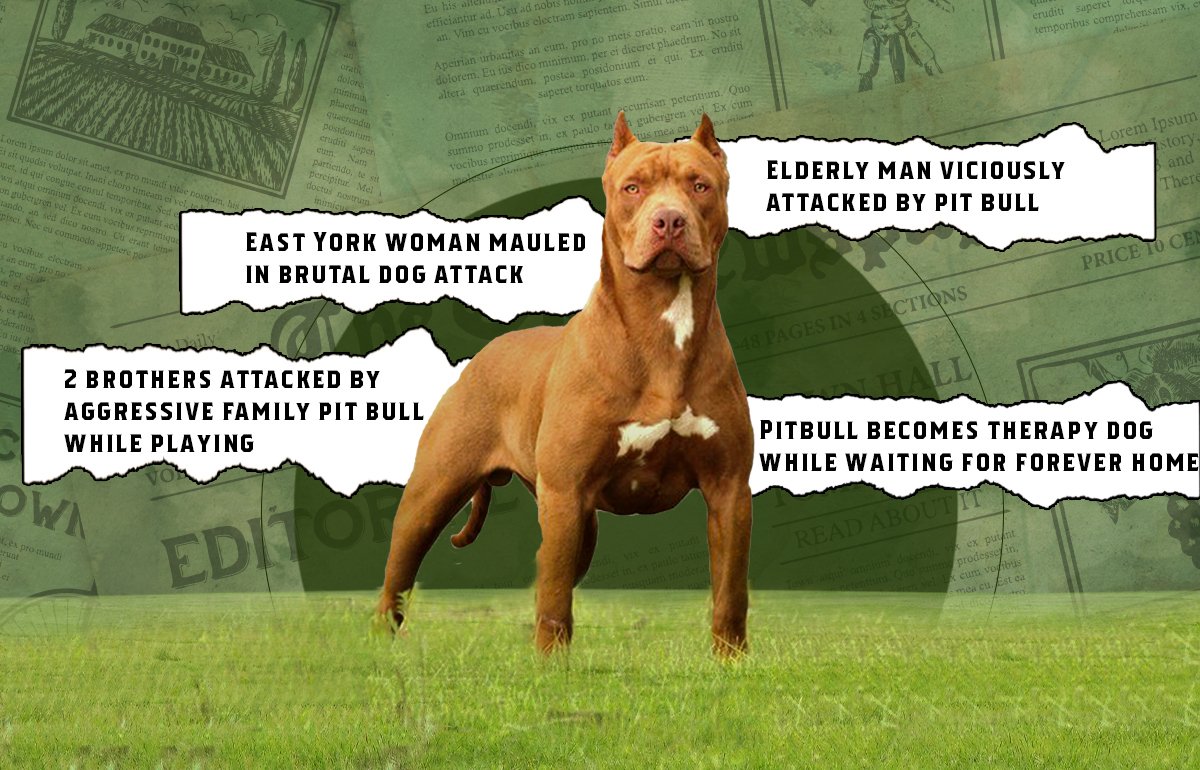Did you know that despite their negative reputation, pitbull dogs actually have one of the highest passing rates in temperament tests among all dog breeds? Contrary to popular belief, these dogs are not inherently dangerous or aggressive. Instead, their behavior is predominantly influenced by their upbringing, socialization, and training.
Pitbull dogs have faced unfair discrimination due to their association with dog fighting, but it is important to note that many pitbulls are loving, loyal pets when raised in a caring environment. In fact, according to the American Temperament Testing Society, pitbulls consistently score higher than average in temperament tests, with passing rates of over 83%. Responsible ownership, proper training, and socialization play pivotal roles in shaping the behavior of these dogs, emphasizing the importance of addressing the real root causes of aggression rather than blaming the breed itself.
While pitbull dogs have a reputation for being dangerous, it’s important to understand that their behavior depends on various factors such as training and socialization. All dogs, including pitbulls, are capable of being loyal and loving pets when raised in a responsible and caring environment. It’s crucial to focus on responsible ownership, proper training, and socialization to ensure that any breed, including pitbulls, can be well-behaved and safe companions.

Are Pitbull Dogs Really Dangerous? The Truth Behind the Stereotype
When it comes to discussions about dog breeds, few topics evoke as much controversy and passion as the question of whether pitbull dogs are truly dangerous or if they are victims of unfair stereotypes. Pitbulls often make headlines for alleged attacks and aggressive behavior, but is this breed inherently dangerous? In this article, we will delve into the truth behind the pitbull stereotype and explore the factors that contribute to their behavior.
The Origins of the Pitbull Breed
The term “pitbull” actually refers to a type of dog rather than a specific breed. The term encompasses several breeds, including the American Pit Bull Terrier, American Staffordshire Terrier, and Staffordshire Bull Terrier. These breeds have a common lineage that can be traced back to 19th-century England, where they were bred for bull-baiting and later, dog fighting.
While their original purpose was undoubtedly violent, it is important to note that pitbulls were also bred for loyalty, intelligence, and tenacity. These qualities, combined with their muscular build and impressive athleticism, made them popular working dogs and family pets in the past.
Today, the pitbull’s reputation is marred by the history of dog fighting and the irresponsible actions of some owners who exploit their innate strength. However, it is unfair to generalize the behavior of all pitbulls based on the actions of a few individuals.
Understanding Nature vs. Nurture
One of the most important factors to consider when discussing the behavior of pitbulls is the concept of nature versus nurture. While genetics play a role in shaping a dog’s temperament and tendencies, the environment in which they are raised and the training they receive are equally significant.
It is vital to remember that no breed is inherently dangerous. Aggressive behavior is often a result of mistreatment, neglect, or poor socialization, rather than an innate characteristic of a specific breed. Pitbulls, like any other breed, can be loving and well-behaved when provided with responsible ownership, proper training, and a nurturing environment.
Moreover, it is important to recognize that factors such as socialization, early training, and positive reinforcement greatly influence a dog’s behavior. When pitbulls are exposed to various environments, people, and other animals from a young age, they have a higher chance of developing into friendly and well-adjusted dogs.
Debunking the Aggression Myth
Pitbulls, unfortunately, carry a stigma of being inherently aggressive, which is far from the truth. In fact, studies have consistently shown that pitbulls score equal to or better than many other popular breeds in temperament assessments. According to the American Temperament Test Society, pitbulls have a passing rate of over 86%, which puts them on par with breeds like Golden Retrievers and Bichon Frises.
It is crucial to differentiate between aggression and protectiveness. Pitbulls are often protective of their families, which can be misinterpreted as aggression. However, by providing proper socialization and training, owners can cultivate their natural protective instinct in a positive way, ensuring that their pitbull becomes a loyal and well-behaved companion.
Additionally, it is essential to address the role of irresponsible ownership in shaping a dog’s behavior. Pitbulls, like any breed, can be more susceptible to aggressive behavior when subjected to neglect, abuse, or irresponsible breeding practices. Addressing these underlying issues is crucial in promoting responsible ownership and preventing any potential risks associated with the breed.
The Importance of Responsible Pitbull Ownership
Responsible ownership is the key to ensuring that pitbulls, as well as any other breed, can thrive and be positive contributors to society. Here are some essential tips for responsible pitbull ownership:
- Socialize your pitbull from a young age to expose them to different environments, people, and animals.
- Provide regular exercise and mental stimulation to keep your pitbull physically and mentally healthy.
- Enroll your pitbull in obedience training classes to establish basic manners and reinforce positive behaviors.
- Use positive reinforcement techniques such as treats, praise, and play to reward desired behaviors.
- Ensure that your pitbull receives regular veterinary care, including vaccinations, spaying or neutering, and preventive treatments for fleas, ticks, and heartworms.
- Always supervise interactions between your pitbull and children or other pets, and teach them appropriate behavior.
- Be a responsible advocate for the breed by promoting positive perceptions and reinforcing responsible ownership practices.
By following these guidelines, pitbulls can flourish as loving, loyal, and well-behaved pets.
Pitbulls as Therapy and Service Dogs
Despite the negative stereotypes surrounding pitbulls, these remarkable dogs have proven themselves as valuable assets in therapy and service work. Their innate intelligence, trainability, and strong desire to please make them excellent candidates for tasks such as emotional support, therapy visits, and even assisting individuals with disabilities.
Pitbulls have the ability to form deep bonds with their owners and possess an incredible empathy and compassion. This makes them well-suited for assisting individuals in need, providing comfort in hospital settings, and supporting those with emotional or physical challenges.
Organizations such as Paws with a Cause and Therapy Dogs International recognize the potential of pitbulls and actively train and place them in various therapy and service roles. These organizations focus on responsible breeding, rigorous training, and individual assessments to ensure the suitability of each dog for their specific task.
Are Pitbull Dogs Really Dangerous? The Verdict
It is unfair and inaccurate to label all pitbulls as dangerous. While they may possess physical traits that can be intimidating, their behavior is shaped by a combination of genetics, environment, and responsible ownership. Pitbulls, like any other breed, have the potential to be loving, loyal, and well-behaved companions when provided with the right care and socialization.
It is important to challenge the stereotypes surrounding pitbulls and judge each dog as an individual rather than making generalizations based on breed. By promoting responsible ownership, educating the public, and advocating for fair assessments of pitbulls, we can help dispel the myth of their inherent danger and give these incredible dogs the chance they deserve.
Key Takeaways: Are Pitbull Dogs Really Dangerous?
- Pitbull dogs are often misunderstood and unfairly labeled as dangerous.
- Like any other breed, a dog’s behavior is primarily influenced by its upbringing and environment.
- Proper training, socialization, and responsible ownership are key factors in preventing aggression in any dog.
- The American Temperament Test Society has found that pitbulls have a temperament passing rate of 86.4%.
- Many pitbulls are friendly, affectionate, and make great family pets when given the right care and attention.
Frequently Asked Questions
Welcome to our frequently asked questions section where we answer some common queries about pitbull dogs and their perceived dangerousness. Find out more about these loyal and misunderstood creatures below.
Why are pitbull dogs often considered dangerous?
Pitbull dogs are often considered dangerous due to misconceptions and negative media portrayals. These dogs are strong and muscular, which can create a false perception of aggression. However, it is important to note that aggression is not a breed characteristic but rather a result of poor training, abuse, or neglect.
Like any other breed, a pitbull’s behavior is influenced by its environment and upbringing. With proper socialization, training, and responsible ownership, pitbulls can be friendly and gentle companions.
Are pitbull dogs inherently aggressive?
No, pitbull dogs are not inherently aggressive. Aggression is not specific to any breed but can be influenced by a variety of factors such as genetics, training, socialization, and treatment from their owners. It is unfair and inaccurate to label an entire breed as aggressive based on a few isolated incidents or media sensationalism.
Pitbulls can be loving, loyal, and gentle if they receive proper care and training. Like any dog, they thrive in a nurturing and positive environment, and with responsible ownership, they can make excellent family pets.
Are pitbulls more dangerous than other dog breeds?
No, pitbulls are not inherently more dangerous than other dog breeds. It is important to remember that aggression and dangerous behavior can be found in any breed, depending on the individual dog and its upbringing.
Statistics have shown that there is no evidence to support the claim that pitbulls are more dangerous than other breeds. The perception of their “dangerousness” is often a result of media hype and misrepresentation. It is crucial not to generalize and judge an entire breed based on the actions of a few individuals.
What can I do to ensure my pitbull is well-behaved and not dangerous?
Ensuring your pitbull is well-behaved and not dangerous involves responsible ownership and proper training. Start by socializing your pitbull from a young age, exposing them to different people, animals, and environments in a controlled and positive manner.
Consistent obedience training is vital in teaching your pitbull basic commands and proper behavior. Positive reinforcement techniques, such as rewards and praise, work best with pitbulls to encourage good behavior. Additionally, providing them with regular exercise, mental stimulation, and a loving and secure home environment will contribute to their overall well-being and reduce the likelihood of dangerous behavior.
Can pitbull dogs be good family pets?
Yes, pitbull dogs can be excellent family pets. With proper training, socialization, and responsible ownership, pitbulls can be gentle, affectionate, and loyal companions for the entire family.
Pitbulls are known for their strong bond with humans and their natural desire to please their owners. They are often described as “nanny dogs” due to their affinity for children. However, it is important to always supervise interactions between dogs, including pitbulls, and young children to ensure safety and prevent any potential accidents.

VERIFY: Are pit bulls the most dangerous breed of dog?
Summary
Pitbull dogs have gained a controversial reputation, but are they really dangerous? It’s important to understand that a dog’s behavior depends on how they are raised and treated. Many pitbulls are friendly, loyal, and make great family pets. However, like any other breed, they can become aggressive if not properly trained and socialized. So, it’s crucial to provide them with love, care, and training to ensure they grow up to be well-behaved and loving companions.
It is unfair to label all pitbulls as dangerous based on a few incidents. The key lies in responsible ownership and handling. By providing them with a safe and loving environment, any dog, including pitbulls, can thrive and be wonderful additions to our lives. Remember, it’s not just about the breed; it’s about the love and care we give them.
